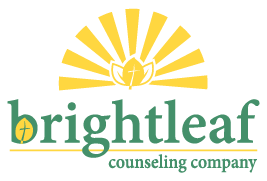Contact
4900 NC Hwy 150 East
Brown Summit, NC 27214
(336) 662-2003
info@brightleafcounseling.com
Brightleaf Counseling
4900 NC Hwy 150 East
Brown Summit, NC
What is
Addiction
Addiction is defined as a chronic, relapsing disorder characterized by compulsive drug seeking, continued use despite harmful consequences, and long-lasting changes in the brain. It is considered both a complex brain disorder and a mental illness. Addiction is the most severe form of a full spectrum of substance use disorders, and is a medical illness caused by repeated misuse of a substance or substances.
The new DSM describes a problematic pattern of use of an intoxicating substance leading to clinically significant impairment or distress with 10 or 11 diagnostic criteria (depending on the substance) occurring within a 12-month period. Those who have two or three criteria are considered to have a “mild” disorder, four or five is considered “moderate,” and six or more symptoms, “severe.” The diagnostic criteria are as follows:
- The substance is often taken in larger amounts or over a longer period than was intended.
- There is a persistent desire or unsuccessful effort to cut down or control use of the substance.
- A great deal of time is spent in activities necessary to obtain the substance, use the substance, or recover from its effects.
- Craving, or a strong desire or urge to use the substance, occurs.
- Recurrent use of the substance results in a failure to fulfill major role obligations at work, school, or home.
- Use of the substance continues despite having persistent or recurrent social or interpersonal problems caused or exacerbated by the effects of its use.
- Important social, occupational, or recreational activities are given up or reduced because of use of the substance.
- Use of the substance is recurrent in situations in which it is physically hazardous.
- Use of the substance is continued despite knowledge of having a persistent or recurrent physical or psychological problem that is likely to have been caused or exacerbated by the substance.
- Tolerance, as defined by either of the following:
- A need for markedly increased amounts of the substance to achieve intoxication or desired effect
- A markedly diminished effect with continued use of the same amount of the substance
- Withdrawal, as manifested by either of the following:
- The characteristic withdrawal syndrome for that substance (as specified in the DSM-5 for each substance).
- The use of a substance (or a closely related substance) to relieve or avoid withdrawal symptoms.
(information provided by the National Institute of Drug Abuse)


